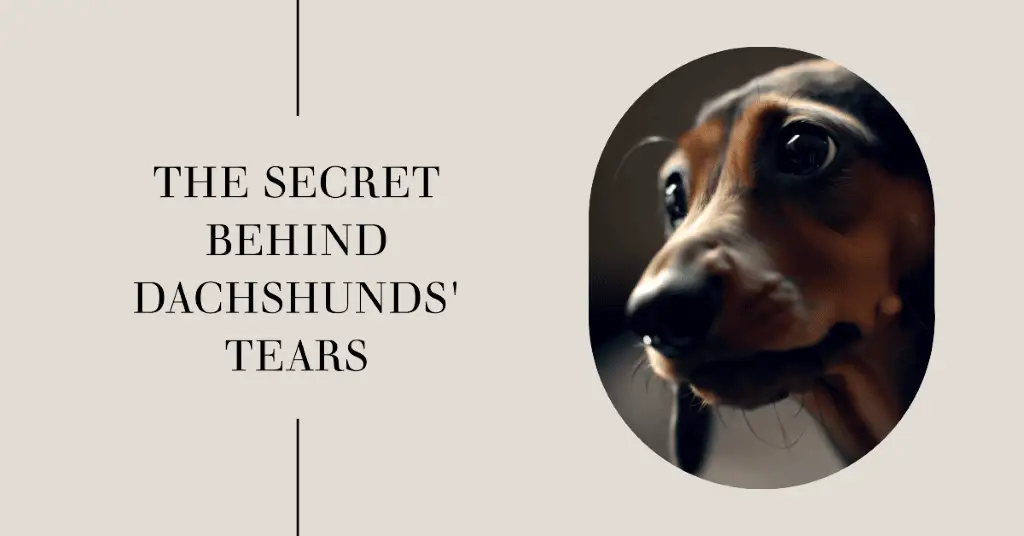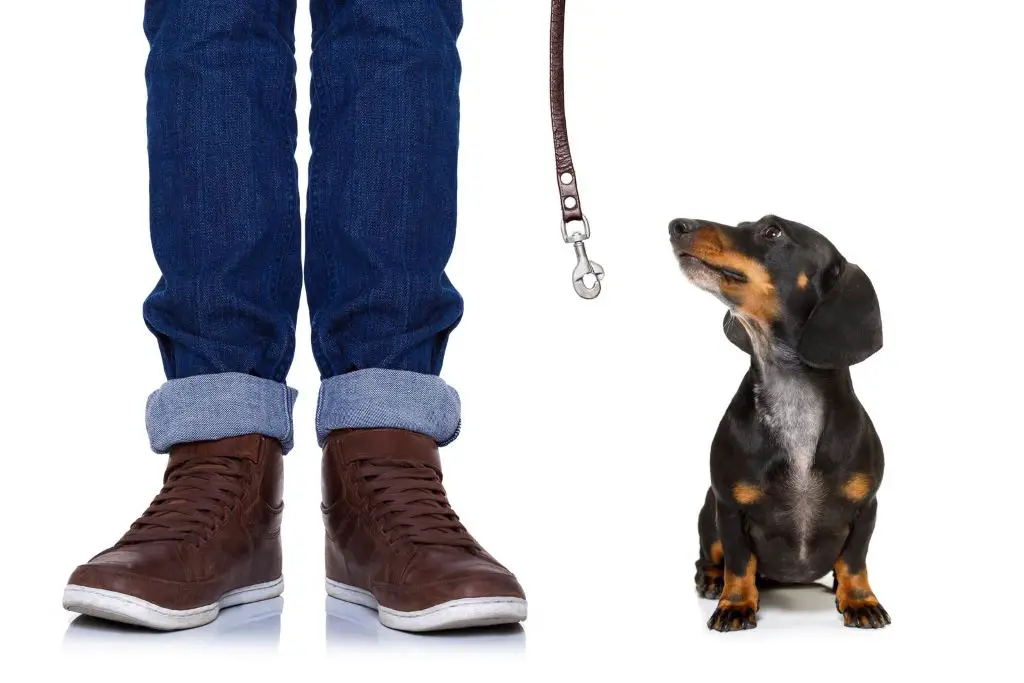Picture this: Your new, adorable puppy has just chewed up your favorite pair of shoes. Frustration bubbles up, and you’re tempted to give them a quick spank to show that such behavior is unacceptable. But wait – is it ok to spank your puppy? You love your furry friend, and you certainly don’t want to harm them or damage your budding relationship.
In this article, we’ll delve into understanding puppy behavior, explore common misbehaviors, and discuss the difference between discipline and punishment.
We’ll also provide strategies for correcting without causing harm and emphasize the importance of positive reinforcement. And if things get too challenging, we’ll guide you towards professional training assistance. It’s all about nurturing a healthy bond with your pet while setting boundaries in a compassionate manner.
Key Takeaways
- Spanking a puppy is not effective or humane for discipline.
- Positive reinforcement techniques, such as treats and praise, are more effective.
- Training should focus on guiding the puppy towards good habits, not establishing dominance through fear.
- Professional training assistance can be beneficial in teaching and shaping a puppy’s behavior.
Understanding Puppy Behavior
You can’t even imagine how much of a whirlwind your little furball’s behavior can be – it’s like they’ve got an endless supply of energy and mischief that could outdo a tornado! Understanding puppy behavior is fundamental in creating a harmonious relationship between you and your pet. These tiny creatures are inquisitive explorers, eager to learn about their new world. Their playfulness isn’t just for fun; it’s also how your puppy learns about their surroundings.
Training your puppy involves teaching them what is acceptable and unacceptable behavior. It requires patience, consistency, and positive reinforcement. Remember, they’re still learning the ropes of domesticated life – every slipper chewed, or pee accident on the rug isn’t an act of defiance but rather part of their learning process.
Disciplining your dog doesn’t mean applying physical punishment for bad behavior. Instead, consider using techniques such as redirection or time-outs whenever they misbehave. Your goal should be to guide them toward good habits rather than punishing them for the bad ones.
Remember that understanding and patience go hand-in-hand when training a new pup. With time, they will grow out of their rambunctious phase into well-behaved furry companions.
Common Misbehaviors
Considering this, it’s often hard to understand why that adorable little furball might be acting out with common misbehaviors. However, comprehending the reasons behind your puppy’s actions can help in training your dog effectively and humanely.
Most likely, if you’re considering whether or not to punish your dog for bad behavior, they’ve done one of these three things:
- Chewed on something they shouldn’t have.
- Had an accident inside your home.
- Barked excessively at people or other animals.
These are all normal stages in a puppy’s development and signs that you need to guide them towards better habits rather than resorting to spanking a dog which could potentially harm their well-being.
Misbehaviors from puppies usually stem from boredom, fear, lack of proper training, or simply not knowing what’s expected of them yet. Spanking a dog is neither a fair nor effective correction method, as it only creates fear and confusion without teaching the pup how to act appropriately. Instead of using physical punishment when they misbehave, use positive reinforcement techniques such as treats and praise for good behavior.
Remember that patience is key during this process – you’re both still learning about each other, after all!
Discipline Vs Punishment
It’s crucial to understand the difference between discipline and punishment when it comes to training our dogs. Spanking a puppy falls under the category of punishment, an action that aims to instill fear or discomfort so as to discourage specific behaviors. However, such methods are not only cruel but also ineffective in teaching your pup right from wrong.
On the other hand, discipline is about guiding your puppy towards desired behavior using techniques like positive reinforcement. This approach celebrates good behavior instead of focusing on the negatives. For instance, if your dog sits when asked, you give them a treat or praise them enthusiastically. This way, they associate sitting on command with something pleasurable and are more inclined to repeat this behavior in the future.
When it comes down to it, training should be about building trust and understanding between you and your pet rather than establishing dominance through fear. Using punishment might result in temporary obedience but can lead to long-term emotional problems for your puppy. Instead of opting for harsh measures like spanking a puppy, try embracing positive reinforcement strategies that foster healthy habits and create a loving bond with your pet.
Correcting without Harm
Imagine being able to correct that mischievous little furball without causing them any harm, just by harnessing the power of positive reinforcement and gentle guidance. It’s important to understand that training takes time, and patience is key. You don’t need to punish your puppy to teach them good behavior.
• Positive reinforcement can be a powerful tool for shaping your puppy’s actions. When they do something desirable, reward them with a treat or praise.
• Redirect their energy, if they’re doing something you don’t want. Rather than punishing them, redirect their attention towards an activity you approve of.
• Consistency is key in teaching your pup what’s acceptable and what’s not. Always react the same way to certain behaviors so they understand clearly what you expect from them.
Remember, it’s crucial to never spank or physically harm your puppy, as this could lead to fear or aggression later on in life. Instead, use gentle correction techniques like those mentioned above. Your goal isn’t just about having an obedient dog; it’s about nurturing a relationship built on mutual respect and understanding. So take some time each day for training – because truly effective learning doesn’t happen overnight but over time.
Positive Reinforcement Importance
Properly training that little furball can feel like a monumental task, but keep in mind, the power of positive reinforcement can work wonders. It’s crucial to understand the importance of positive reinforcement importance when teaching your dog new behaviors. Instead of focusing on punishing bad behavior, which could potentially harm or scare your puppy, think about rewarding their good behavior. A treat, a pat on the head, or heartfelt praise can often go a long way.
The secret sauce here is timing – reward them immediately after they’ve done something right so they associate their action with receiving praise. This helps to solidify the connection between their actions and the resulting rewards.
Remember that dogs are social creatures, and they crave approval from their pack leader – that’s you! Your puppy will be more likely to repeat behaviors that earn them love and rewards from you. Before you know it, Fido has learned a new trick or stopped that annoying habit without any need for harsh corrections.
So next time your pup does something right, let him know he’s done well! Teaching with kindness reinforces good behavior while building trust between you two – making training an enjoyable process for both parties involved.
- GRAIN-FREE PUPPY TREATS: These bite-sized, soft puppy training treats are the perfect reward during training sessions or any time you want to thank your dog for good behavior. Puppy bites contain 6 calories per individual treat.
- SUPPORTS BRAIN DEVELOPMENT: Soft dog treats are crafted with salmon, a healthy source of DHA to promote healthy brain development.
- HEALTHY INGREDIENTS: These treats for dogs are made with minimal ingredients focused on quality proteins: made with lamb and salmon, with added vitamins specifically for puppies.
- NO CORN, WHEAT, OR SOY: Treats for dogs do not contain wheat, wheat gluten, corn, soy, or artificial colors.
- MADE IN USA: Our dog treats are quality-assured, made in USA, and crafted from the finest globally-sourced ingredients. Treats are tender, healthy, and bite-sized for small, medium, and large dogs of all lifestages, and activity levels.
Professional Training Assistance
Coming from our discussion on the importance of positive reinforcement, you might be wondering if there’s someone who could guide you through this process. That’s where professional training assistance comes into play.
A dog trainer can be a huge asset when it comes to teaching your pup appropriate behaviors. They are equipped with proven training methods and techniques that help them understand the unique needs and behavior patterns of dogs.
| Dog Training Benefit | Description |
|---|---|
| Expertise | Professional dog trainers have extensive knowledge and experience in dealing with diverse breeds and behaviors. They understand how to assess a dog’s temperament, identify problem behaviors, and develop customized training plans that are tailored to each dog’s unique needs. |
| Techniques | Trainers use a variety of tried-and-tested, humane techniques for efficient learning. These techniques may include positive reinforcement, clicker training, and shaping. They also know how to use different types of rewards, such as treats, praise, and playtime, to motivate and encourage dogs. |
| Consistency | Consistency is essential in dog training, and professional trainers understand this. They maintain a consistent regimen to help dogs learn and reinforce new behaviors. This includes setting clear expectations, using consistent commands and cues, and providing regular feedback and rewards. Trainers also work closely with owners to ensure that training is consistent across different environments and situations. |
Choosing a professional trainer will allow you to tap into their expertise, equipping you with the necessary skills to train your puppy even outside of sessions. Plus, they can offer personalized plans based on your pup’s breed, age, personality, and any specific behavioral issues.
Remember though, while seeking help from a professional dog trainer can prove beneficial, always ensure they promote kind treatment towards animals. It’s about setting a foundation of love and respect between you and your furry friend—never resorting to harmful actions like spanking.
Frequently Asked Questions
What are some alternatives to spanking for puppy discipline?
Are puppies perplexing you with their antics? Try training with patience and persistence. Use positive reinforcement, praise, and treats to encourage good behavior. Deter undesirable actions by redirecting attention or using time-outs. Remember, repetition is key!
How might spanking affect the mental health of a puppy?
Spanking can harm a puppy’s mental health. It might instill fear, anxiety, or aggression instead of teaching proper behavior. Your pup could become terrified of you, which hinders trust and positive relationship building.
Is it legal to spank your puppy in certain regions?
The legality of spanking your puppy varies by region and country. In some places, it’s considered animal abuse, while in others, there are no specific laws against it. It’s crucial to research local regulations.
What are the signs that your puppy is afraid or stressed because of physical punishment?
Around 90% of dogs show signs of fear or stress when physically punished. Your puppy may whimper, cower, avoid eye contact, constantly lick their lips or shake if they’re traumatized by physical punishment.
How does spanking your puppy influence their future behavior with humans and other animals?
Spanking your pup can lead to fear-based behaviors, including aggression towards humans and other animals. It may not understand why it’s being hit, causing confusion, and potentially leading to trust issues in the future.
Conclusion
So, as you’ve journeyed through this pup-filled Odyssey, you’d realize it’s not about punishment but guidance. Spanking your puppy isn’t okay.
Instead, focus on promoting good behavior with positive reinforcement and professional help if needed. Remember, patience is key in molding a well-behaved furry companion. It’s a long road, much like Homer’s epic tale – but the reward? A loyal friend for life!










